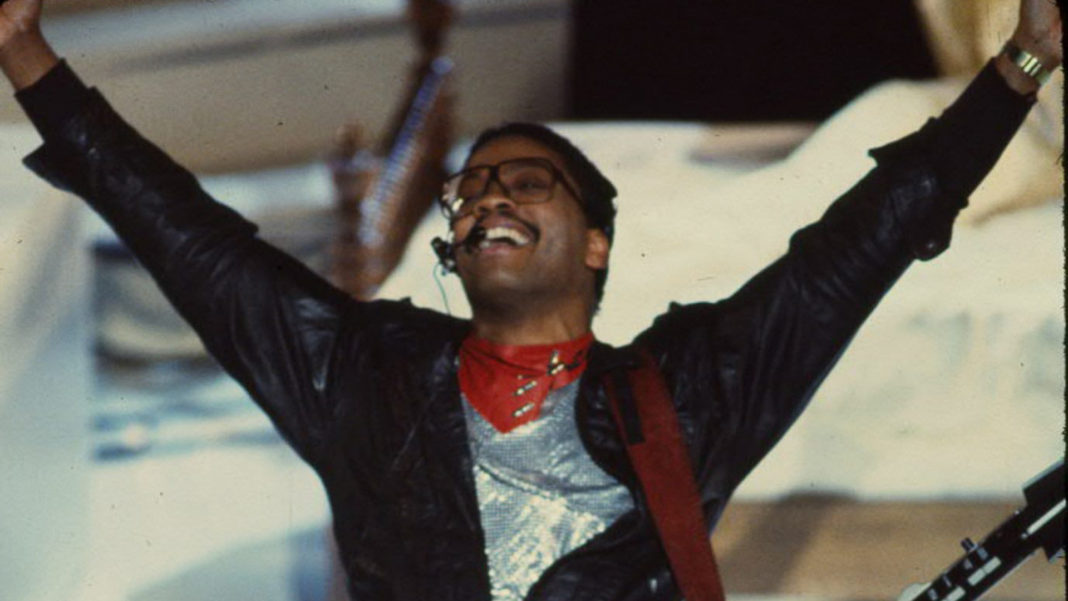Today we continue our conversation with Herbie Hancock. He will be performing at the Hollywood Bowl on Wednesday night in an evening of his own music and that of three artists he believes are part of the Next Generation of Jazz: R+R=Now, Thundercat and Phoelix.

Jazz has often served as a source of commentary on the world in which we live in. How does jazz today comment on the world in 2019?
First of all it’s played by human beings who live in the present. So naturally we are all influenced by the world around us. That influence comes out in the music. It’s always been like that.
I know you didn’t ask me this, but we also function, in a way, as diplomats. We’re bringing this extremely important and necessary art form to the rest of the world. There are a lot of functions that jazz players perform.
Naturally whatever is occurring in the world, and we are living in difficult times today, it’s going to influence each of us in different ways depending on how we look at the world. I like to look at the world through my lens which looks first to see what I can do to move forward. I’m not looking at who is at fault for things being screwed up. What can I contribute to that? What can I do for that? How can I transform myself so the situation will transform? That I believe is crucial in the world. One of the things that brings about so much trouble is that it is easy for people. If they are told that something or someone outside of themselves is the fault for their suffering, they are naturally going to gravitate towards that. That means they give up their own power to this external influence. You never want to do that.
Is jazz at its most influential when the approach to social commentary is subtle or more direct in perhaps the way someone like Terence Blanchard does it?
You can’t actually apply the word subtle until you see the consequence. Something may appear to be subtle, but then it has a major influence. How do you apply the word subtle to that? There are just so many ways to affect change, to educate people. Some can appear to be extremely powerful, but can also be damaging. I know what Terrance is doing is not damaging. I love what he’s doing. I love his multi-pronged approach to affect change or education people or to help in some way. It’s coming from compassion and that’s what we all need.
Dan Seef, who is part of the Herbie Hancock Institute at UCLA, hosts a show on KJZZ radio that connects the dots between jazz and hip-hop. Do you see a link between jazz and hip-hop? Was Miles Davis a precursor to hip-hop? He certainly has influenced hip-hop.
There definitely is a link to jazz. There is a spirit of that with Miles. There weren’t words and there were no rhymes, but that kind of collaborative effort. He did things right after I finished with the band, there were two or three more records – On the Corner was one of them. Around that time in the late 60s and just early 70s around the time when Miles did Bitches Brew, that kind of collective synergy was already happening.
Miles was putting people together right in the studio just before they pushed the record button. Miles would on-the-spot give a few instructions, but the instructions, they were almost like in code. He never told anybody what to play. He would give the musicians some of the imagery he had in mind. And some simple verbal instructions. Maybe there were a few notes written down or a phrase, but it would be developed on the spot. Free styling, in rap, that in itself is improvisation. It is rhythmic improvisation with poetry.
You won an Academy Award for your score for the 1986 movie, ‘Round Midnight. The film, of course, takes its name from Thelonious Monk’s song which was written almost 40 years earlier. If someone were to take a composition of yours as inspiration for a movie approximately 40 years after you introduced it, what would you like it to be and why?
I would like it to be a surprise. I don’t know. I don’t have an answer for that. I’d have to hear it. I would like it to be honest coming from the arranger. I would like it to have its own character. It doesn’t have to sound like what I did. I already did that. I hope it sounds new. And I hope people enjoy it.
I gave you kind of a bullsh** answer. I’m trying to put into words one simple truth – I don’t care what it is. Until I hear it. The thing is I don’t have a preconception of what it should be. I hope I never have some preconception of what it should be. Honesty is important because it transcends time. I think it is something I, and whoever does the arrangement, I hope we feel the same way about the importance of the honesty.
For tickets go here.
To read part one of our interview with Herbie Hancock, go here.
All photos courtesy of HerbieHancock.com











